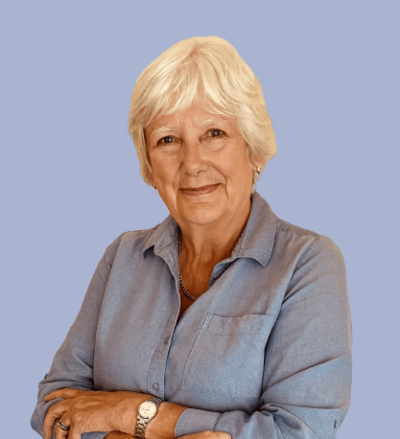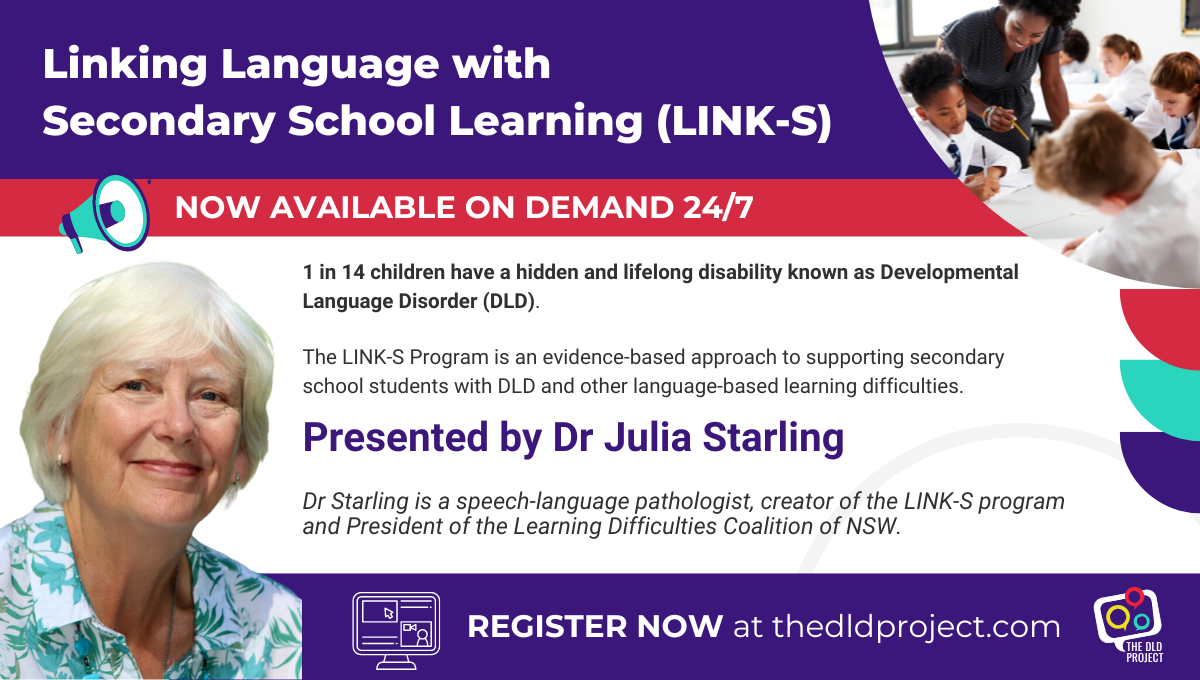LINK-S On Demand Training – 12 Months Access
The Linking Language with Secondary School Learning (LINK-S) Program is an evidence-based professionally collaborative approach to supporting secondary school students with Developmental Language Disorder (DLD) and other language-based learning difficulties.
This Response to Intervention Tier 1 model of service delivery aims to create ‘language-friendly’ secondary school classrooms. It focuses on coaching teachers and supporting clinicians in ways to modify the oral and written instructional language used in their regular classroom practices. The program has been successfully implemented in many schools across Australia. Speech pathologists have reported positive feedback from classroom and learning support teachers, and positive results in students’ classroom engagement and academic progress.
Reference: Starling, J., Munro, N., Togher, L., & Arciuli, J. (2012). Training secondary school teachers in instructional language modification techniques to support adolescents with language impairment: A randomised controlled trial. Language, Speech and Hearing Services in Schools, 43, 474-495. View Abstract click here.
Course Overview
Time to complete course: Approximately 6 hours.
This on demand course has been created from the recordings of a LIVE LINK-S workshop held in Australia. It is broken into five videos that make up 6 hours of content.
- Introduction to the collaborative model (40 minutes)
- Direct Vocabulary Instruction (2 hours)
- Teachers’ Oral Language (50 minutes)
- Teachers’ Written Language (1 hour and 17 minutes)
- Program Implementation and Resources (1 hour and 27 minutes)
Benefits of on demand, self-paced study: You can stop and start or circle back on a section easily from anywhere in the world 24/7. Your registration fee provides you with 12 months access to this course, so you have plenty of time to learn, reflect, implement, and then return at any time to revisit the course material during your 1-year course access period.
Learning Objectives
Following completion of the workshop, clinicians and educators will:
- Gain a broad understanding of the collaborative model of service delivery in secondary school environments, with the evidence underpinning such approaches.
- Be familiar with the main areas covered in the LINK-S Program: Teachers’ oral and written instructional language, and direct vocabulary instruction.
- Be aware of how the program can be implemented in schools, with a range of case histories.
Facilitator | Dr Julia Starling

Dr Julia Starling is a Sydney-based speech-language pathologist who has extensive clinical and research experience with populations of children, adolescents and young adults with language and literacy disorders. Her personal and professional life has spanned many decades, countries and cultures. Julia has worked with community health multidisciplinary teams, with remote outreach organisations, with mental health services and as a university clinical educator and lecturer. Currently, Julia maintains her private caseload of school-aged children and adolescents, regularly lectures and presents seminars and workshops, and continues to have an active involvement in research projects. She was the 2014 Speech Pathology Australia National Tour speaker. Additionally, Julia is President of the Learning Difficulties Coalition of NSW.
LINK-S Training Manual
Access to the LINK-S Program Manual ($145 AUD) is highly recommended to maximise on this learning opportunity. You may already have access to a copy through your workplace.
Thank you for making a difference!
The DLD Project is a self-funded social enterprise. This means we receive no government funding or donations to fund the ongoing development and delivery of our services such as The Talking DLD Podcast, FREE resources and training for families, advocacy work with the NDIS, etc. It is our aim to develop and distribute resources that are accessible to all regardless of socio-economic status or location. Your participation in this workshop helps fund our work creating resources, information and training for therapists, educators, and families. Thank you for your support and for your commitment to empowering people with DLD.

